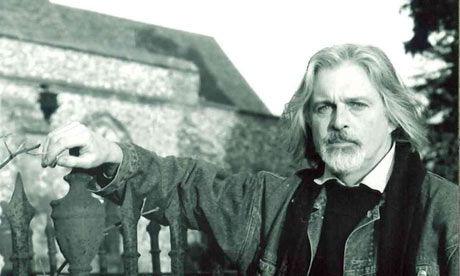
The poet Brian Jones first came to prominence in the late 1960s when Poems (1966) and A Family Album (1968) were published by Alan Ross, in his innovative pocket-sized early London Magazine Editions. Sales were unusually high for a young poet and Jones was suddenly staring at celebrity. He was the co-subject (with Brian Patten, with whom he shared little beyond a name) of a Don Taylor BBC Omnibus documentary called A Couple of Brians, and appeared in a number of late-night television arts review programmes, once being asked (an invitation he refused) to represent the views of women because he was deemed to have written perceptively about them. The poetry milieu was not for him, though he enjoyed the company of other writers. He moved away from London to Canterbury, Kent, eventually settling in France, where he has died, aged 70.
Jones was born in Islington, north London, where he spent his early years. The family moved to Greenford, west London, and Jones attended Ealing grammar school. He won an early scholarship to Selwyn College, Cambridge, where, aged 17, he found himself separated from other students not only by social class but also by age (most of those there had first completed National Service, from which Brian was exempt as an exhibitioner).
This deep-rooted sense of alienation was to lead to interruptions to his study, and his Cambridge days were not kindly remembered. That Jones embarked on a career in adult education that included teaching (or rather facilitating) creative writing in psychiatric units and prisons relates back to such experience. The epitaph to his Exiled Voices (published in Freeborn John, 1990) is a quotation from the clinical psychologist David Smail: "The greatest violence done to people in our society is to rob them of a public life." Jones was of the view that the poet has a responsibility to speak for those who have, as it were, no voice.
The attraction of Jones's first two collections lay in the way in which he converted the personal and domestic into telling verse. Even the lyrics had stories to tell that were never merely confessional. When he wrote in a poem that his father was dead (in fact, his father died only recently), Jones struggled to understand why he was receiving calls of condolence. His adult education students readily recall his interest in what he referred to as "poetic li(v)es". Nevertheless, he revealed little of himself in real life.
Looking back, one can find even in the first poem of his first book instances of what were to prove perennial themes – distance, purpose, history, separation, solitariness – what the poet Michael Longley was to call "the darker areas of the mind". These ideas would come to inform later poems, following the break-up of his first marriage and his anger in the face of Thatcher's Britain ("a cold vision … crushes discourse beneath its monologue … its scything realism that takes/every thought at the knee").
In 1980 Carcanet Press published the first of three collections, The Island Normal, described by Carcanet's Michael Schmidt as "the most interesting collection by a British poet that has reached us for some time". Jones's steadfastly secular voice was not that of Hughes or Heaney or Geoffrey Hill and consideration of his work alongside theirs might usefully add a dimension missing in the critical discussion of postwar British poetry. The poet and critic Peter Bland said in 1999: "We are badly in need of a Jones Selected … I doubt that the fires are out, but the best of what we already have will almost certainly outlast the decades with which it was so intimately and courageously concerned." Jones would be the recipient of both Cholmondeley and Gregory awards.
The Children of Separation (1985) deals in part with Jones's meeting his second wife, Noëlle, with whom he was to spend the rest of his life. Although later poems written in Normandy appeared in Poetry Review, London Magazine and PN Review, no further collections emerged after Freeborn John. This was at least in part the result of Jones recognising finally that it was the writing that mattered to him, not what happened to the work afterwards. Jones's tendency towards the reclusive contributed to his relative critical neglect.
He is survived by Noëlle, his children, Cathy and Steve, and stepson, Nick.
• Brian Jones, poet, born 10 December 1938; died 25 June 2009

